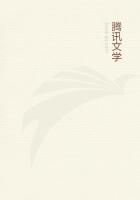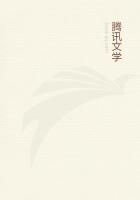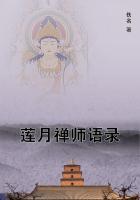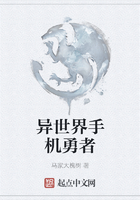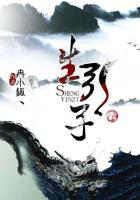It cannot have been more than two or three years after Bunyan's return home from his short experience of a soldier's life, that he took the step which, more than any other, influences a man's future career for good or for evil. The young tinker married. With his characteristic disregard of all facts or dates but such as concern his spiritual history, Bunyan tells us nothing about the orphan girl he made his wife. Where he found her, who her parents were, where they were married, even her christian name, were all deemed so many irrelevant details. Indeed the fact of his marriage would probably have been passed over altogether but for the important bearing it hid on his inner life. His "mercy," as he calls it, "was to light upon a wife whose father was counted godly," and who, though she brought him no marriage portion, so that they "came together as poor as poor might be," as "poor as howlets," to adopt his own simile, "without so much household stuff as a dish or a spoon betwixt" them, yet brought with her to the Elstow cottage two religious books, which had belonged to her father, and which he "had left her when he died." These books were "The Plain Man's Pathway to Heaven," the work of Arthur Dent, the puritan incumbent of Shoebury, in Essex - "wearisomely heavy and theologically narrow," writes Dr. Brown - and "The Practise of Piety," by Dr.
Lewis Bayley, Bishop of Bangor, and previously chaplain to Prince Henry, which enjoyed a wide reputation with puritans as well as with churchmen. Together with these books, the young wife brought the still more powerful influence of a religious training, and the memory of a holy example, often telling her young graceless husband "what a godly man her father was, and how he would reprove and correct vice both in his house and amongst his neighbours, and what a strict and holy life he lived in his days both in word and deed."Much as Bunyan tells us he had lost of the "little he had learnt"at school, he had not lost it "utterly." He was still able to read intelligently. His wife's gentle influence prevailed on him to begin "sometimes to read" her father's legacy "with her." This must have been entirely new reading for Bunyan, and certainly at first not much to his taste. What his favourite reading had been up to this time, his own nervous words tell us, "Give me a ballad, a news-book, George on Horseback, or Bevis of Southampton; give me some book that teaches curious arts, that tells of old fables."But as he and his young wife read these books together at their fireside, a higher taste was gradually awakened in Bunyan's mind;"some things" in them he "found somewhat pleasing" to him, and they "begot" within him "some desires to religion," producing a degree of outward reformation. The spiritual instinct was aroused. He would be a godly man like his wife's father. He began to "go to church twice a day, and that too with the foremost." Nor was it a mere formal attendance, for when there he tells us he took his part with all outward devotion in the service, "both singing and saying as others did; yet," as he penitently confesses, "retaining his wicked life," the wickedness of which, however, did not amount to more than a liking for the sports and games of the lads of the village, bell-ringing, dancing, and the like. The prohibition of all liturgical forms issued in 1645, the observance of which varied with the strictness or laxity of the local authorities, would not seem to have been put in force very rigidly at Elstow. The vicar, Christopher Hall, was an Episcopalian, who, like Bishop Sanderson, retained his benefice unchallenged all through the Protectorate, and held it some years after the Restoration and the passing of the Act of Uniformity. He seems, like Sanderson, to have kept himself within the letter of the law by ****** trifling variations in the Prayer Book formularies, consistent with a general conformity to the old order of the Church, "without persisting to his own destruction in the usage of the entire liturgy." The decent dignity of the ceremonial of his parish church had a powerful effect on Bunyan's freshly awakened religious susceptibility - a "spirit of superstition" he called it afterwards - and helped to its fuller development. "I adored," he says, "with great devotion, even all things, both the High Place" - altars then had not been entirely broken down and levelled in Bedfordshire - "Priest, Clerk, Vestment, Service, and what else belonging to the church, counting all things holy that were therein contained, and especially the Priest and Clerk most happy, and without doubt greatly blessed because they were the servants of God and were principal in the Holy Temple, to do His work therein, . . . their name, their garb, and work, did so intoxicate and bewitch me." If it is questionable whether the Act forbidding the use of the Book of Common Prayer was strictly observed at Elstow, it is certain that the prohibition of Sunday sports was not. Bunyan's narrative shows that the aspect of a village green in Bedfordshire during the Protectorate did not differ much from what Baxter tells us it had been in Shropshire before the civil troubles began, where, "after the Common Prayer had been read briefly, the rest of the day even till dark night almost, except eating time, was spent in dancing under a maypole and a great tree, when all the town did meet together." These Sunday sports proved the battle-ground of Bunyan's spiritual experience, the scene of the fierce inward struggles which he has described so vividly, through which he ultimately reached the firm ground of solid peace and hope. As a high-spirited healthy athletic young fellow, all kinds of manly sports were Bunyan's delight. On week days his tinker's business, which he evidently pursued industriously, left him small leisure for such amusements.

